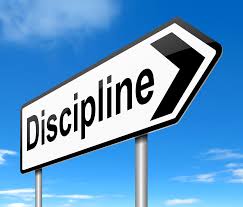Understanding Discipline: Key Concepts and Importance
Discipline refers to the practice of training oneself to follow a set of rules or a code of behavior, using self-control and consistent effort. It is essential in various aspects of life, including personal development, education, workplace success, and overall well-being.
Key Concepts of Discipline
-
Self-Discipline:
- Definition: The ability to control one's emotions, behavior, and desires in the face of external demands.
- Importance: Self-discipline helps in achieving long-term goals, maintaining focus, and managing time effectively.
-
External Discipline:
- Definition: Discipline imposed by external sources, such as parents, teachers, or employers.
- Importance: It establishes a framework for acceptable behavior and performance standards, particularly in educational and professional settings.
-
Positive Discipline:
- Definition: A method that focuses on positive reinforcement and encouragement rather than punishment.
- Importance: Positive discipline fosters a supportive environment that promotes learning and growth.
-
Preventive Discipline:
- Definition: Measures taken to prevent issues before they occur, such as setting clear expectations and providing training.
- Importance: It helps in avoiding conflicts and maintaining a harmonious environment.
Importance of Discipline
-
Personal Development:
- Goal Achievement: Discipline is crucial for setting and achieving personal goals, as it requires consistent effort and perseverance.
- Self-Improvement: Regular practice of discipline enhances self-control, decision-making skills, and overall personal growth.
-
Educational Success:
- Academic Performance: Discipline in studying and attending classes leads to better academic results and a deeper understanding of subjects.
- Time Management: It helps students prioritize tasks and manage their time efficiently.
-
Professional Success:
- Workplace Efficiency: Discipline in the workplace leads to increased productivity, punctuality, and reliability.
- Career Advancement: Disciplined individuals are more likely to be recognized for their hard work and dedication, leading to promotions and career growth.
-
Health and Well-Being:
- Healthy Habits: Discipline in maintaining a balanced diet, regular exercise, and adequate sleep contributes to overall health.
- Mental Health: It helps in managing stress, anxiety, and maintaining a positive outlook on life.
Strategies to Develop Discipline
- Set Clear Goals: Define specific, measurable, achievable, relevant, and time-bound (SMART) goals.
- Create a Routine: Establish a daily schedule and stick to it to build consistency.
- Eliminate Distractions: Identify and minimize factors that hinder focus and productivity.
- Use Positive Reinforcement: Reward yourself for small achievements to stay motivated.
- Practice Mindfulness: Engage in activities like meditation and mindfulness to enhance self-awareness and control.
Conclusion
Discipline is a fundamental trait that underpins success in various aspects of life. By understanding its key concepts and importance, and by implementing strategies to develop discipline, individuals can achieve their goals, improve their well-being, and lead more fulfilling lives.


